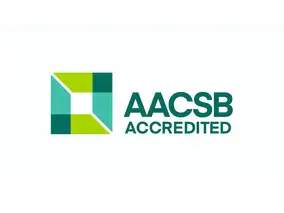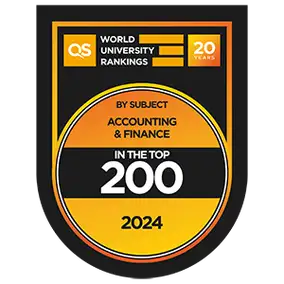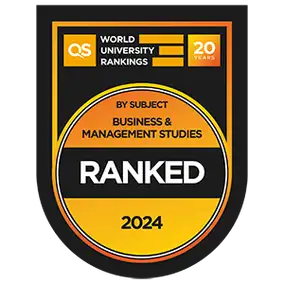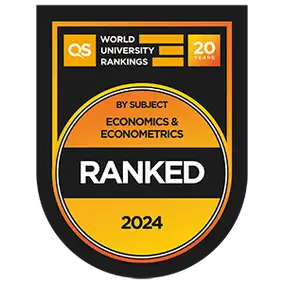Where you can study
International students
International students are not New Zealand citizens or residents.
Specialise in Financial Economics for your Master of Management at Massey
The Master of Management is a professional, relevant and contemporary qualification.
It has a unique core of courses that focus on key business skills like communication, leading and working in teams, and current issues in business.
Financial economics concentrates on decision-making under uncertainty. These decisions are applied to a variety of capital markets and asset-pricing. There is a greater emphasis on the role of information for economic co-ordination and organisations. You will build upon your undergraduate studies to gain an international perspective on management.
You will learn from our business experts – Massey University has the largest and one of the most highly respected management schools in New Zealand.
Rigorous study
The Master of Management is a rigorous programme, where you will be expected to achieve at a high level. The quality of our graduates reflects this, and contributes to the reputation of the qualification.
Interested in a PhD?
To progress to a PhD, choose Massey’s research-based Master of Business Studies.
A Master of Management in Financial Economics is a good fit if you:
- Have an undergraduate degree (not necessarily in business)
- Would like to change or progress a management career
- Are interested in a qualification that is primarily taught and practice-based
Planning information
If you study full-time, you’ll take 120 credits per year or 60 credits per semester.
For progression to Part Two of the Master of Management, you will need to achieve a B- grade average across the Part One courses.
If you have completed at least 60 credits of postgraduate study with a minimum grade average of C+ you will not need to complete the core courses in Schedule A (115758 and 115759, or 295700). However, this is not a credit and you must complete an approved alternative course/s totalling 30 credits in your subject, or an alternative course from Schedule B, or equivalent. You will need to add the course using the Special Permission function on the Course Enrolment page in your portal.
If you are admitted directly to Part Two of the Master of Management on the basis of credit for Part One, you will be awarded the qualification without a subject.
Official regulations
To understand what you need to study and must complete to graduate read the official rules and regulations for this qualification.
You should read these together with all other relevant Statutes and Regulations of the University including the General Regulations for Postgraduate Degrees, Postgraduate Diplomas, and Postgraduate Certificates.
Returning students
For returning students, there may be changes to the majors and minors available and the courses you need to take. Go to the section called ‘Transitional Provisions’ in the Regulations to find out more.
In some cases the qualification or specialisation you enrolled in may no longer be taking new enrolments, so may not appear on these web pages. To find information on the regulations for these qualifications go to the Massey University Calendar.
Please contact us through the Get advice button on this page if you have any questions.
Courses you can enrol in
Course planning key
- Prerequisites
- Courses that need to be completed before moving onto a course at the next level. For example, a lot of 200-level courses have 100-level prerequisite courses.
- Corequisites
- Courses that must be completed at the same time as another course are known as corequisite courses.
- Restrictions
- Some courses are restricted against each other because their content is similar. This means you can only choose one of the offered courses to study and credit to your qualification.
Core courses for the Master of Management
As well as the specialisation courses listed below, this qualification has core courses that you will need to complete.
Master of Management core courses
Financial Economics courses
Part One
Compulsory course
Course code: 178703 The Theory and Practice of Economics 30 credits
This course is a survey of developments in macroeconomic and microeconomic theory with extension into contemporary issues and practice.
View full course detailsFinance subject courses
Course code: 125700 Managerial Finance 30 credits
A study of the theory of finance with an emphasis on managerial decision making.
View full course detailsCourse code: 125732 Advanced Corporate Finance 30 credits
Advanced Corporate Finance is a course with a quantitative base. It builds a theoretical foundation from which students can consider finance issues. Consideration of corporate financial management, capital markets and long-term financial strategy is undertaken with the objective of making corporate decisions more efficiently.
View full course detailsCourse code: 125740 Advanced Investment Analysis 30 credits
This course provides a comprehensive coverage of advanced theory and practice regarding investments and portfolio management.
View full course detailsCourse code: 125781 Advanced Financial Risk Management 30 credits
This course considers the roles of financial risk management in reducing risk and/or increasing returns in an organisation. Students will be exposed to advanced financial risk management from both theoretical and empirical perspectives.
View full course detailsEconomics subject courses
Course code: 178712 International Monetary Economics 30 credits
This course is concerned with the monetary and macroeconomic relationships between countries. It deals with such issues as balance-of-payments problems and policies, the functioning of foreign exchange rate markets, the determination and causes of exchange-rate movements, the international monetary system, and derivative instruments including swaps, options and futures.
View full course detailsCourse code: 178718 Health Economics 30 credits
Subject areas to be covered include microeconomics for healthcare, the economics of politics and bureaus, demand for healthcare, the supply and organisation of healthcare, hospital behaviour, moral hazard, cost-benefit analysis in health, private versus public provision of healthcare and contemporary policy issues.
View full course detailsCourse code: 178719 Climate Change Economics and Policy 30 credits
An analysis of the economics of climate change and evaluation of the mitigation options used by policy makers globally.
View full course detailsCourse code: 178755 Economic Growth, International and Development Economics 30 credits
A critical assessment of topics from economic growth, international economics and the nature and measurement of development. There is an emphasis on the empirical and policy implications of development strategies including the relationship between managing development, role of the State, international economy, globalisation, trade theory and policy, global crises, and macroeconomic policy.
View full course detailsPart Two
Course code: 178896 Professional Practice 60 credits
Candidates will undertake professional practice within the subject area in which the Master of Management is being completed. Professional Practice may be conducted either individually or in groups and assessment of the outcome of the investigation may be in a variety of ways including written and oral presentations and case studies
View full course detailsEntry requirements
Admission to Massey
All students must meet university entrance requirements to be admitted to the University.
Specific requirements
To enter the Master of Management (Financial Economics) you will:
- have been awarded or qualified for a relevant bachelor’s degree or equivalent qualification, having achieved a grade average of at least B- in the highest level courses, or
- have been awarded or qualified for a Postgraduate Diploma in Business with a B- grade average, or equivalent.
If you have a Postgraduate Diploma in Business from Massey University as outlined above, you may apply for credit towards Part One of the qualification, in a single subject. If you are granted credit, the degree will be awarded without a subject.
You will need to provide copies of all official academic transcripts for studies taken at all universities other than Massey University.
English language requirements
To study this qualification you must meet Massey University's English language standards.
English language skills
If you need help with your English language skills before you start university, see our English for Academic Purposes (EAP) courses.
Fees and scholarships
Fees, student loans and free fees scheme
Your tuition fees may be different depending on the courses you choose. Your exact fees will show once you have chosen your courses.
There will also be some compulsory non-tuition fees and for some courses, there may also be charges for things such as study resources, software, trips and contact workshops.
- Get an estimate of the tuition fees for your qualification
- View a list of non-tuition fees that may be payable
Already know which courses you're going to choose?
You can view fees for the courses that make up your qualification on the course details pages.
Student loans (StudyLink) and Fees Free scheme
You may be eligible for a student loan to help towards paying your fees.
The New Zealand Government offers fees-free tertiary study for eligible domestic students. Find out more about the scheme and your eligibility on the Fees Free website. To use the site's eligibility checking tool, you will need your National Student Number.
Current and returning Massey students can find their National Student Number in the student portal.
- Student loans (StudyLink)
- Fees Free
- Student portal
Scholarship and award opportunities
Find more scholarships and awardsFees disclaimer
This information is for estimation purposes only. Actual fees payable will be finalised on confirmation of enrolment. Unless otherwise stated, all fees shown are quoted in New Zealand dollars and include Goods and Services Tax, if any. Before relying on any information on these pages you should also read the University's Disclaimer Notice.
Careers and job opportunities
If you would like to progress into a management role, or are interested in progressing into a higher level of management, the Master of Management can facilitate this progression.
Sought after by employers
International trends are for employers to reward postgraduate study well, especially in larger enterprises. The skills you learn are increasingly recognised as setting you apart from other potential employees.
Earn more
A 2017 Ministry of Education publication The post-study earnings and destinations of young domestic graduates, found that in New Zealand:
- Young master’s graduates earn more than one and a half times more than the national median (five years after study)
- Earnings and employment rates increase with the level of qualification completed
- Five years after completion, the median earnings of young master’s graduates are 15% higher than for those with a bachelor’s degree.
International students
New Zealand is a great place to study. Massey University’s reputation is supported by our international rankings, accreditations and associations. We are rated five star plus by the QS World University Rankings.
Massey University has small class sizes, and our lecturers and staff are friendly and approachable.
As an international student, there are entry requirements that will apply to you. We recommend that you apply at least three months before your anticipated start date so your application can be processed in time. There are additional steps you will need to take. These include obtaining a visa and travel bookings if your study is to be in New Zealand.
Accreditations and rankings

Association to Advance Collegiate Schools of Business (AACSB)
Massey Business School is rated in the top 5% of global business colleges by AACSB International.

QS Ranking – Accounting and Finance
Massey is ranked by QS (Quacquarelli Symonds) as one of the top 200 universities for accounting and finance.

QS Ranking - Business Management Studies
Massey University is ranked by QS (Quacquarelli Symonds) as one of the top 400 universities for business and management.

QS Ranking - Economics and Econometrics
Massey University is ranked by QS (Quacquarelli Symonds) as one of the top 350 universities for economics and econometrics.
Related study options
Diploma in Facilities Management – DipFM
Learn about operational maintenance and management of built facilities with Massey's Diploma in Facilities Management. This will open the way to a diverse and challenging career.
Economics – Bachelor of Business
The Bachelor of Business (Economics) is a versatile degree where you will learn how the world of business works, and gain the skills to interpret global information and events.
Economics – Bachelor of Arts (Honours)
With Massey’s Bachelor of Arts (Honours) (Economics) you can take your undergraduate study of economics further.
Economics – Master of Business Studies
Massey’s Master of Business Studies (Economics) will give you the business and economics skills to take your career to the next level. Specialising in economics will give you many career options.
Economics – Bachelor of Arts
Succeed as a professional in the private, not-for-profit or public sector. Learn how the economy affects our everyday life, culture, and environment.
Economics – Diploma in Arts
Improve your economic decision-making skills and understanding with Massey’s Diploma in Arts (Economics).
Economics – Postgraduate Diploma in Arts
With Massey's Postgraduate Diploma in Arts (Economics) you’ll build on your undergraduate interests and further investigate topics in economics that have taken your interest.
Economics – Master of Arts
Open up a world of employment options. With Massey’s Master of Arts (Economics) you’ll build on your undergraduate interests and develop your analysis and research skills.
Economics – Graduate Diploma in Arts
The Graduate Diploma in Arts (Economics) will give you the equivalent of an undergraduate major in economics without having to complete a second bachelor’s degree.
Graduate Diploma in Facilities Management – GradDipFM
Build on your existing knowledge and skills in construction with Massey’s Graduate Diploma in Facilities Management. Learn how to organise, control and coordinate the strategic and operational management of facilities.
Useful planning information

Key information for students
Compare qualifications and academic information across different New Zealand institutions. Learn more on careers.govt.nz
